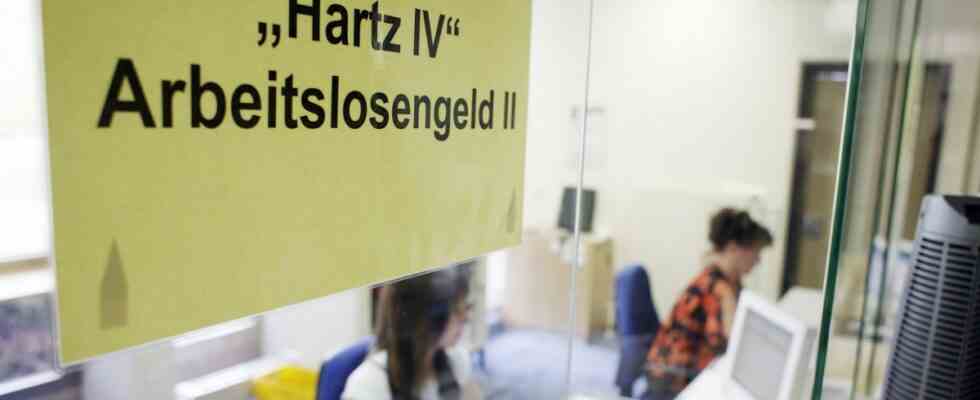The federal government wants to spend less money in 2023 to get the long-term unemployed back into work. As can be seen from the cabinet’s draft budget, only 4.2 billion euros are planned for “integration in work”. This year, on the other hand, 4.8 billion euros are planned. Experts fear that a special program that finances wage subsidies for employers who hire the long-term unemployed will suffer particularly badly. The Green labor market expert Beate Müller-Gemmeke directly criticized the austerity decisions: “The social labor market is a successful instrument, because we must not leave people who have been unemployed for a long time alone. And that’s why it’s good that not the Federal Minister of Finance, but we , the Bundestag, decides on the budget.”
A spokesman for Finance Minister Christian Lindner (FDP) rejected responsibility for the cuts. The distribution of the funds in detail is a matter for the Minister of Labour. A spokeswoman for Labor Minister Hubertus Heil (SPD) said that the Bundestag would now decide on the final equipment. Heil will “continue to campaign for an active labor market policy and for a corresponding long-term funding of the social labor market”. It is important that the social labor market is made permanent. Most recently, almost 50,000 people found their way out of long-term unemployment.
The FDP social politician Jens Teutrine contradicted the presentation that his party friend Lindner was planning drastic cuts in the social labor market for the long-term unemployed. The Federal Government, with the consent of the Minister of Labor, has decided that the new budget funds will be lower. “But three crucial aspects were overlooked.” Leftover budget funds could also be used in 2023 – in this case it would be 600 million euros – for example to support the long-term unemployed. Secondly, as part of the so-called passive-active exchange for the social labor market, a further 700 million euros could be mobilized for unemployment benefit II. “Thirdly, the number of employable beneficiaries has fallen in recent years. Overall, this means that a higher amount of funding will be available per capita in 2023.”
While the traffic light coalition is still struggling to interpret what it has actually decided, the verdict of the opposition and social organizations is already clear. The cut would be a “blatant declaration of bankruptcy,” said Jessica Tatti, social politician on the left. If the SPD and the Greens got involved, they gambled away the last bit of socio-political credibility. The CDU social expert Kai Whittaker also criticizes “brutal” cuts. Instead of creating hundreds of new jobs in its own apparatus, the government should let the money benefit the population. “This social cutback is definitely not sustainable.”
Diakonie board member Maria Loheide called it “indecent” to cut the long-term unemployed and low-skilled workers. The general manager of the Paritätisches Gesamtverband, Ulrich Schneider, pointed out that the number of long-term unemployed due to the corona pandemic had risen above the one million mark for the first time. DGB board member Anja Piel explained that Lindner’s plan would have devastating consequences.

